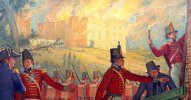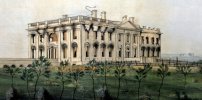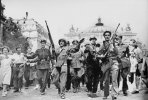Darkprincess69
High Priestess of Slaanesh
Nixon's resignation was a huge blow to the American people, who, up until that point, for the most part placed a fair amount of respect and trust in the political class. Post-Watergate, they stopped trusting politicians (good call) and now treat them with the cynicism and disdain that they so richly deserve.50 years ago
Nixon decided to resign. [88] In a nationally broadcast address from the Oval Office on the evening of August 8, 1974, the President said, in part:
"In all the decisions I have made in my public life, I have always tried to do what was best for the nation. Throughout the long and difficult period of Watergate, I felt it was my duty to persevere, to make every possible effort to complete the term of office to which you elected me. However, in the last few days it has become apparent to me that I no longer have a strong enough political base in the Congress to justify continuing this effort. While I had such a base, I felt strongly that it was necessary to see the constitutional process through to its conclusion, that to do otherwise would be disloyal to the spirit of this deliberately difficult process and a dangerously destabilizing precedent for the future.
As for us here in the UK, we were 11 years ahead of the US, having stopped trusting these ejits following the Profumo scandal of 1963










